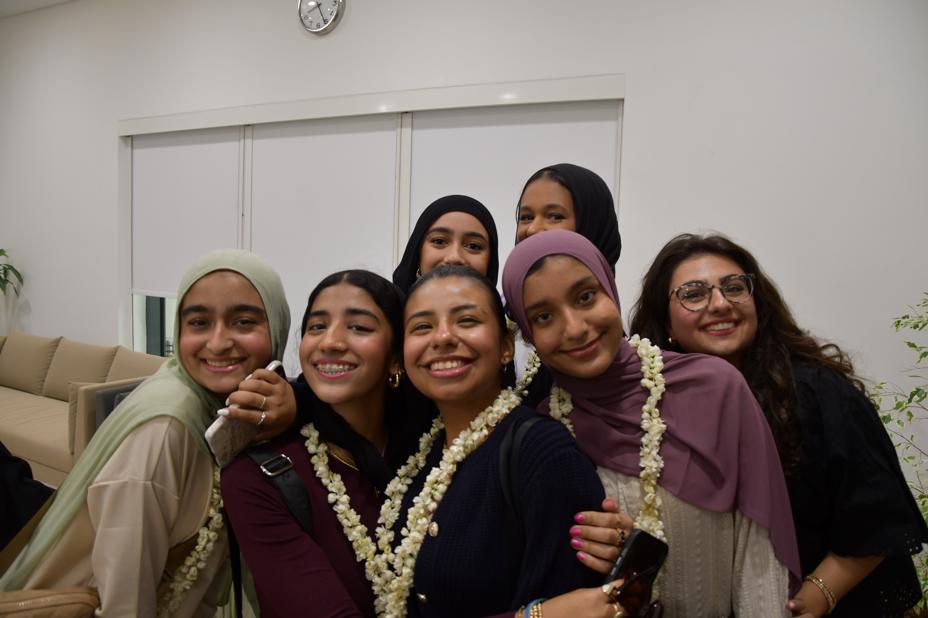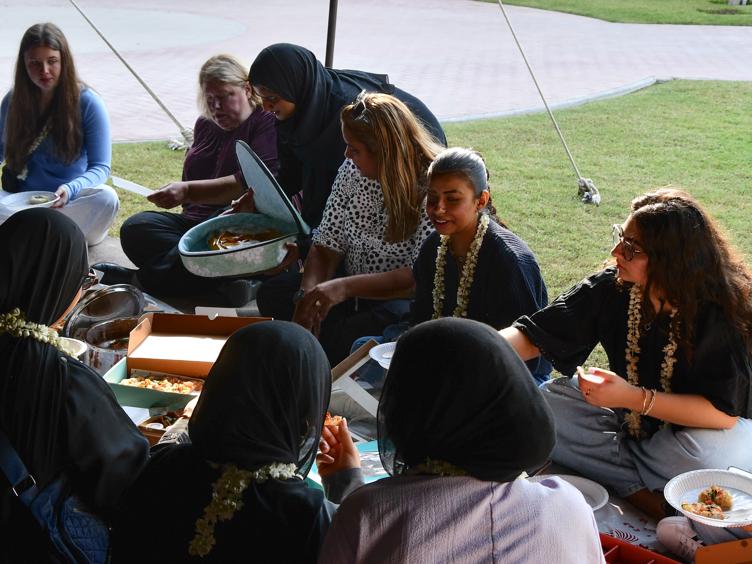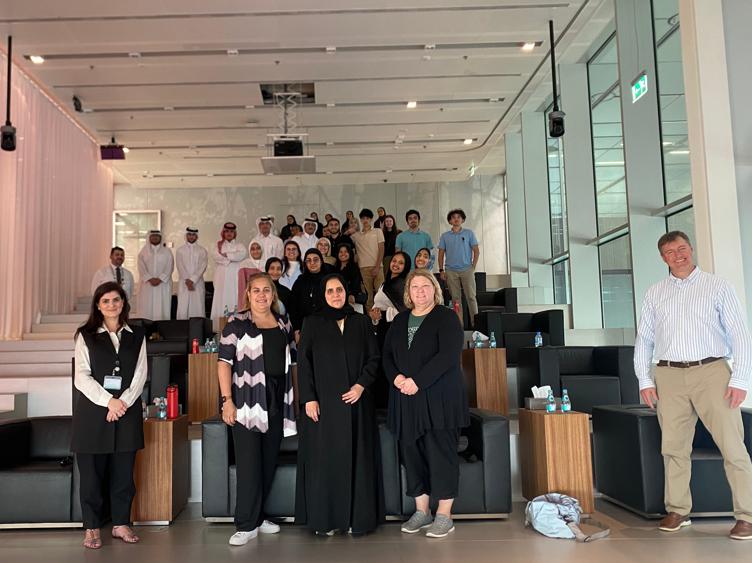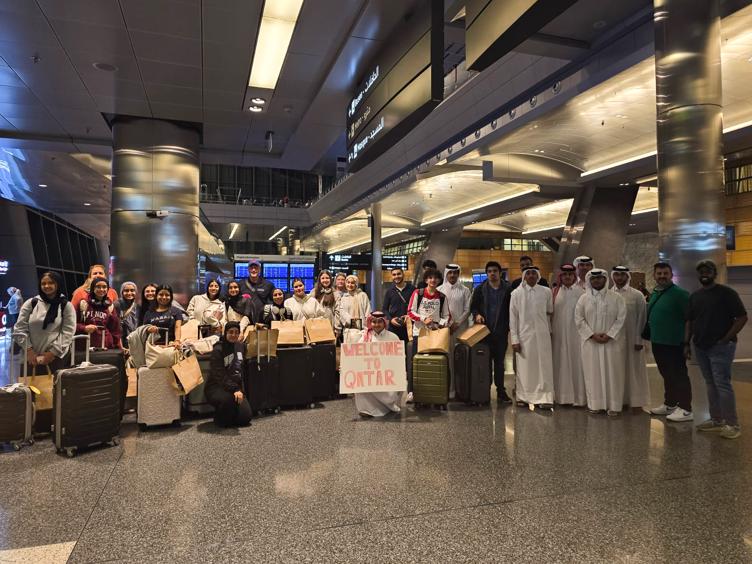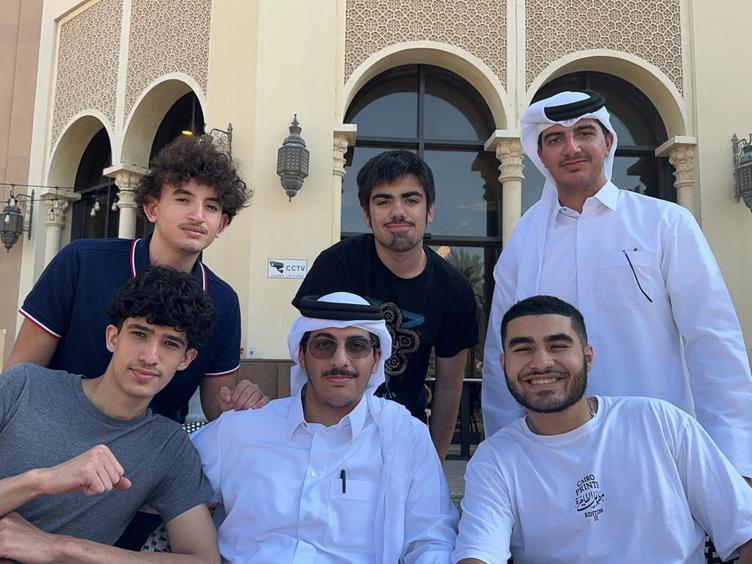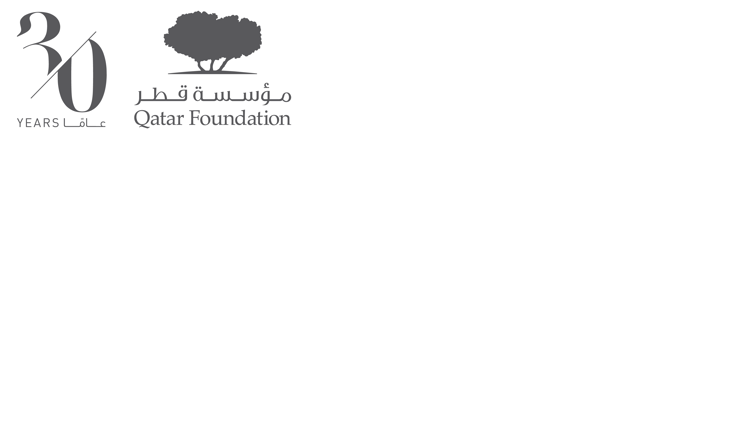
Something went Wrong
Try entering your email again or contact us at support@qfi.org
Try entering your email again or contact us at support@qfi.org
You’ll receive an email with a confirmation link soon.
Jan 31, 2025
In November 2024, 16 students from a high school in Virginia, USA, accompanied by three chaperones, traveled to Qatar for an educational exchange as part of QFI’s Classroom Connections Program. This exchange marked the next chapter in a partnership that began in early 2020, was temporarily interrupted by the pandemic, and has since regained momentum with renewed commitment. The ongoing collaboration between these two schools now continues to strengthen Arabic language learning and sustain lasting connections across continents.
Building a Strong Foundation: Early Successes and Challenges
Jennifer Rodgers, the US high school’s social studies teacher, first applied to be part of the Classroom Connections program with QFI in 2019. Ms. Rodgers had grown and developed the Global Ambassadors Club at her school and was eager to expand the club’s reach to an Arab-majority country.
The Classroom Connections Program and initial exchanges with the Qatari high school was the impetus for the establishment of a new Arabic Club at the US high school. Since the club began in 2021, it has grown to 50 members. The program’s extraordinary level of interest impressed the school staff and made students’ participation in the exchange increasingly competitive. Students now prepare for exchanges by learning Arabic vocabulary and phrases and applying their knowledge during trips. This integration of Arabic language learning helped students better understand the richness of the language and culture while inspiring some to continue their Arabic studies in college or professionally.
The COVID-19 pandemic delayed the second trip to Qatar until 2023, which unfortunately meant that many original participants had graduated by the time the program resumed. Despite these challenges, current students embraced the program, taking on leadership roles and serving as “buddies” for Qatari students when they visited America.
Ms. Rodgers shared that for any schools interested in starting a similar Arabic Club or exchange program, the key to success is fostering “student interest and enthusiasm.” She explained, “In my experience, students are very keen to celebrate and share their own cultures as well as learn about new cultures. The key is to find passionate student leaders eager to share their language and provide them with the logistical support they need.”
The Student Trip: Bringing Arabic to Life
Before the November 2024 trip, Arabic Club members fluent in the language facilitated lessons for their peers, focusing on greetings, numbers, school vocabulary, and shopping-related phrases. These sessions emphasized both language skills and cultural nuances, such as how to negotiate prices in the market. Students found the lessons enjoyable and effective, helping them build confidence in their language abilities.
During the trip, students applied their Arabic skills by ordering at cafes, shopping in Souq Waqif, and conversing with Qatari students. Students affirmed that these activities were excellent ways to test their language skills in realistic contexts. One student shared, “The most meaningful moment for me was going to the home of the Qatari student because we were able to have a personal one-on-one experience.” These immersive moments allowed students to grow linguistically and form meaningful connections with their hosts. Students noted that hearing native speakers every day helped them improve their pronunciation and understand different accents, leading to significant gains in fluency and comprehension.
Voices of the Students: Stories of Growth
When asked why they decided to learn Arabic, students shared diverse motivations. Some were inspired by their heritage and wanted to connect with their traditions, while others were incentivized by the promise of the trip. For a few students, it was an opportunity to explore a new language and culture. The program also improved students’ confidence when writing, speaking, and listening.
Students noticed significant improvements in their Arabic listening and speaking abilities during the trip. One student explained, “By hearing the Qatari students speak every day, I picked up new accents and nuances I hadn’t encountered in the classroom.” Students were so inspired by the trip that many wanted to spend even more time in lessons, deepening their connection to the language.
Julia Sylla, QFI’s Director of Programs, emphasized: “Immersing students in real-world experiences where they actively use Arabic allows them to build language and intercultural skills and gain the confidence to apply Arabic in practical, impactful ways. QFI’s role is to provide the support that creates these transformative opportunities, ensuring that students not only learn the language but thrive with it, using language authentically and as a tool for meaningful communication and future success.”
The Arabic Club: Sustaining the Momentum
The Arabic Club has become a vital part of sustaining enthusiasm for Arabic language learning at the school. With bi-weekly meetings and student-led lessons, it provides members with opportunities to practice the language and explore its global significance. The US school’s principal, Dr. John Brewer, noted that the club provides authentic leadership opportunities for heritage speakers while engaging students eager to expand their linguistic and cultural knowledge.
The club’s student leader, Hana El-Hamalawy, highlighted that the Arabic Club has been a space to unite students through a shared motivation to explore the language and its cultural practices. The leader elaborated, “This club has allowed me to reinforce and share my passion for Arabic with others. At first, the lessons revolved around learning basic foundational knowledge and phrases, but this gave me a newfound appreciation for the complexity of the language...Leading this club has not only given me a place to share my heritage but inspired me to discover and appreciate new aspects of the language.”
Inspiring Broader Change: The Role of Leadership and Advocacy
The program’s success has inspired broader conversations about Arabic education within the school district. When Qatari students visited Virginia in May 2024, they energized their American peers, sparking greater interest in Arabic and the exchange. Ms. Rodgers emphasized: “At our diverse school in the suburbs of Washington D.C., we have many students who continue studying Arabic in college. Some are heritage speakers, some have exposure to Arabic through their family or community, and others are interested in careers in public service.”
Dr. Brewer, inspired by the program's success, has supported the school district’s decision to integrate official Arabic classes into the local school’s curriculum. He asserted that “The Classroom Connections exchange program has shown us how language learning can bridge continents. By integrating Arabic into our school curriculum, we are not only giving students access to a critical global language but also empowering them to become global leaders. This initiative has sparked real enthusiasm for Arabic, and we are committed to ensuring its continued growth and sustainability within our district.”
Latrecia Wilson, Executive Director of QFI, affirmed these sentiments. She stated, “The growth and success of this program exemplify the power of collaboration. At QFI, we have worked closely with the school to ensure that Arabic is not just taught but becomes a vital tool for real-world engagement. By partnering with the school district, we’ve expanded our efforts to create a space where language learning transcends the classroom, opening doors to global opportunities for students. Our work is a testament to the transformative potential of language exchanges—ensuring that Arabic is seen as a tool for connection, leadership, and future success.”
Conclusion: Building a Sustainable Future for Arabic Language Education
This Classroom Connections exchange program has had a profound impact on students, helping them advance their Arabic proficiency, build confidence in using the language, and develop skills that align with their future aspirations. Many students highlighted how the ability to practice Arabic in real-life settings strengthened their fluency and opened doors to potential careers such as diplomacy, where language proficiency is a critical asset.
Ms. Rodgers believes that these kinds of programs empower students to take ownership of their learning journey, ensuring that Arabic thrives as a language of communication, growth, and opportunity for generations to come.
QFI is excited to continue to partner on the development of Arabic as a global language within the district’s curriculum as a true testament to the power of language exchanges and student motivation to learn Arabic. Beyond the exchange program, QFI has supported the district’s World Language Supervisor in discussions on the key elements of success that will allow the district to build a strong and sustainable Arabic language program. The plans to introduce Arabic as a curricular world language offering would broaden access to Arabic as a global language and enhance the skills and abilities of even more students in the school district at large. QFI looks forward to the successful addition of Arabic language instruction in this school district and beyond as part of the wider initiative to build language offerings so that students are well prepared to meet the demands of the global marketplace.
Image 1 of 6

